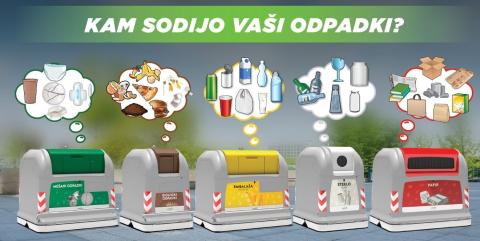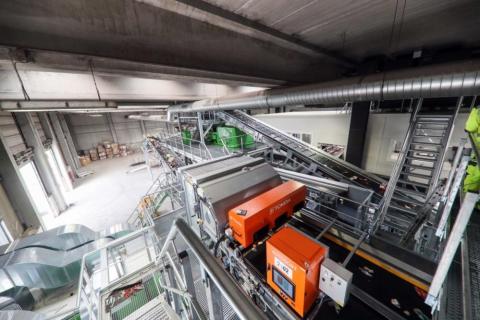
Simbio - in symbiosis with the environment

About this good practice
Simbio drives the regional circular economy with an advanced waste management system, emphasizing plastics. Despite being a limited liability company, Simbio operates as a public entity. The Regional Center for Waste Management was established with funding from the Municipality of Celje, while also involving another 24 regional municipalities. This initiative is co-financed by the European Union's Cohesion Fund and the Republic of Slovenia, therefore public entitites playes a big role in establishing the good practice. With state-of-the-art sorting facilities, Simbio efficiently separates plastics from municipal waste, converting them into high-quality secondary materials for local industry reuse. This process reduces landfill reliance, keeps plastics within the local economy and lessens environmental impact.
Public engagement is integral to Simbio’s strategy. With community workshops and campaigns to educate residents on recycling and proper waste sorting, awareness and the quality of recyclable materials collected are enhanced. This active public involvement strengthens the community's role in the circular economy.
Simbio also collaborates with regional businesses to ensure locally recycled plastics find new uses, fostering industrial symbiosis and supporting sustainable production. By combining efficient waste processing, public participation and industrial collaboration, Simbio positions itself as a key player in the region’s sustainable development.
Expert opinion
Resources needed
Specific funding and human resource details for Simbio's projects are not publicly available. However millions of euros have been invested by EU Cohesion Funds, national funds and local municipal budgets. Resources included infrastructure, advanced sorting tech, skilled staff and education programs.
Evidence of success
Simbio is considered a successful practice due to measurable outcomes in the broader Savinjska Region (25 municipalities). Their advanced sorting system enhances recyclables’ quality, while community education improves waste separation. Collaboration with local industries supports regional sustainability.
Simbio's results:
- 53% of waste is separately collected
- 10% of waste ends up in landfills
- 300 kg of waste per capita annually
- 41,000 tons of total waste collected in one year
Potential for learning or transfer
Simbio d.o.o.’s approach can inspire public authorities by demonstrating the effectiveness of integrating advanced waste sorting, public education, and local industry partnerships in promoting a circular economy. The success of their system shows how waste management can transition from linear to circular, reducing environmental impact while fostering local economic growth. By adopting similar practices, public authorities can enhance policies focused on recycling, sustainability, and resource efficiency. The practice highlights the importance of collaboration between local governments, businesses, and the community, driving systemic change. It also provides a model for creating policies that support the infrastructure, incentives, and educational programs necessary for a circular economy. Public authorities can use this example to develop and refine policies that encourage recycling, reduce landfill dependency, and promote the use of recycled materials in local industries.
Further information
Images
Website
Good practice owner
You can contact the good practice owner below for more detailed information.

Development Agency of Savinja-Šalek Region




